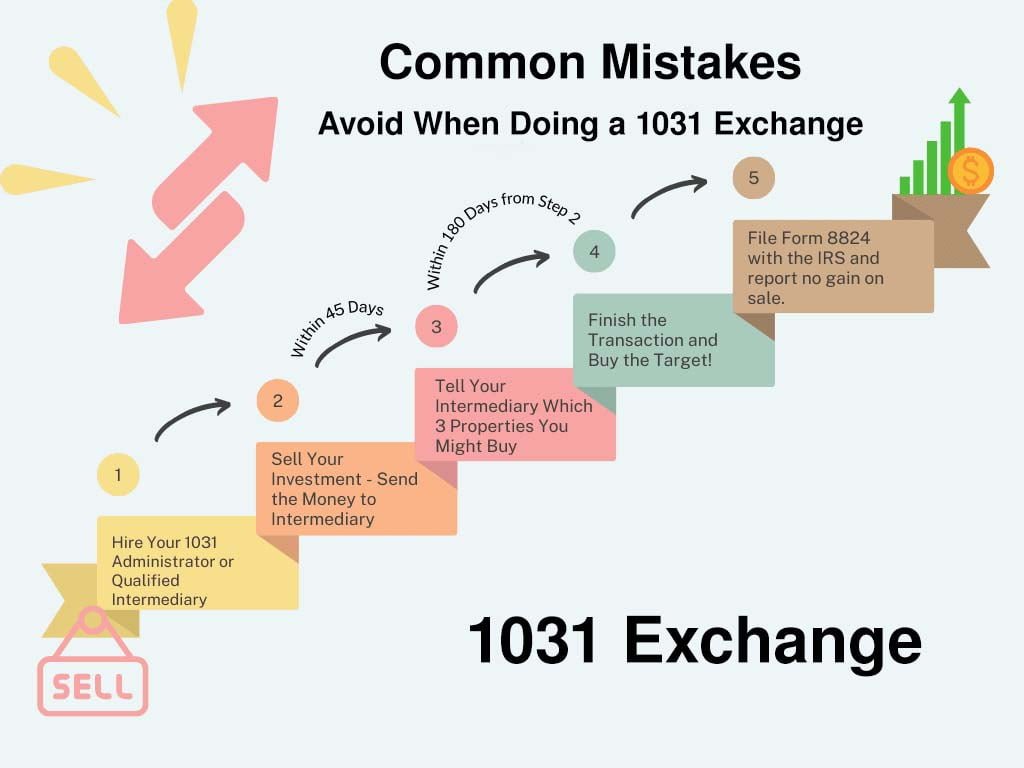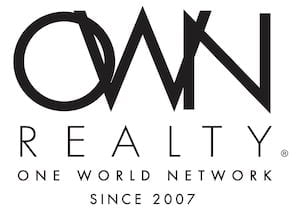
A 1031 exchange is a valuable tool in the real estate investor’s arsenal, offering the potential for tax savings, capital preservation, and portfolio growth. However, it’s not without its complexities, and there are common pitfalls that investors must steer clear of to ensure a successful exchange. In this comprehensive guide, we will delve into the most common mistakes to avoid when conducting a 1031 exchange, helping you navigate the process with confidence and maximize the benefits.
Expanding on the importance of avoiding these common mistakes, it’s vital to recognize that a 1031 exchange can be a transformative financial strategy when executed with precision. A single oversight or misstep can result in significant tax consequences and financial setbacks. For instance, not planning ahead or rushing the process can lead to suboptimal investment choices. Overcommitting during the identification period may force hasty decisions, while choosing the wrong qualified intermediary could lead to mishandled funds and costly errors.
Furthermore, ignoring the nuances of property quality or disregarding the implications of “boot” could undermine the long-term goals of your exchange. Neglecting due diligence during the property selection process may expose you to unforeseen issues, potentially affecting the value and performance of your investments. Without proper education, investors may inadvertently fall into these traps, risking tax liabilities and missed opportunities.
To make the most of a 1031 exchange, investors must take a proactive and informed approach. Seeking professional guidance, staying updated on tax laws, and committing to due diligence in every step of the process are integral to a successful exchange. By avoiding these common pitfalls, you can harness the full potential of a 1031 exchange, realizing its tax benefits, preserving capital, and achieving your long-term financial objectives.
Common Mistakes to Avoid When Doing a 1031 Exchange

I. Failing to Plan Ahead
Mistake 1: Lack of Preparation
One of the most significant mistakes is not planning your 1031 exchange well in advance. Rushing the process can lead to poor property selection, unfavorable negotiations, and ultimately, a failed exchange.
Mistake 2: Timing Errors
Failing to understand and meet the strict timelines of a 1031 exchange, including the 45-day identification period and 180-day exchange period, can result in a disallowed exchange. Proper planning is essential to adhere to these timelines.
II. Choosing the Wrong Qualified Intermediary
Mistake 3: Inadequate Due Diligence
Selecting an unqualified or inexperienced intermediary can have dire consequences. An unreliable qualified intermediary may mishandle funds, provide incorrect advice, or fail to execute the exchange correctly.
Mistake 4: Failure to Confirm Funds Security
Ensure your intermediary has a secure system in place to protect your funds during the exchange process. Neglecting this can expose your funds to unnecessary risks.
III. Identifying Replacement Properties
Mistake 5: Overcommitting
Identifying more replacement properties than allowed or without a clear plan can be detrimental. Overcommitting during the 45-day identification period can lead to rushed decisions and poor investment choices.
Mistake 6: Not Including Backups
Failing to designate backup replacement properties is a missed opportunity. Including backup options provides flexibility if your primary choices fall through.
IV. Ignoring Property Quality
Mistake 7: Sacrificing Property Quality
Some investors might be tempted to prioritize the speed of identification and acquisition over the quality of the replacement property. This mistake can result in investments that do not align with long-term goals.
V. Neglecting Legal and Tax Advisors
Mistake 8: Skipping Professional Guidance
The intricacies of a 1031 exchange can be daunting. Neglecting legal and tax advice can lead to costly mistakes or missed tax benefits.
Mistake 9: Lack of Strategy
Each investor’s situation is unique. Not having a clear strategy that aligns with your financial goals can lead to suboptimal investment choices.
VI. Mishandling Financing
Mistake 10: Taking Out Cash
Accessing cash from the exchange can trigger capital gains taxes. Mishandling the financing of your exchange can result in unforeseen tax liabilities.
Mistake 11: Mixing Personal and Investment Funds
Commingling personal and exchange funds can jeopardize the entire exchange. It’s crucial to keep these funds separate to maintain the tax-deferral benefits.
VII. Forgetting About the “Boot”
Mistake 12: Ignoring the Consequences of “Boot”
Receiving “boot,” which includes cash or non-like-kind property, can lead to taxable gains. It’s essential to be mindful of this when negotiating deals during the exchange process.
VIII. Neglecting Due Diligence
Mistake 13: Insufficient Property Due Diligence
Investors should conduct thorough due diligence on replacement properties, including inspections and research. Neglecting this step can lead to unexpected issues and property devaluation.
IX. Neglecting Reinvestment
Mistake 14: Not Reinvesting the Full Proceeds
Failing to reinvest the entire proceeds from the sale of the relinquished property can result in taxable gains on the unreinvested portion.
X. Not Monitoring Legislative Changes
Mistake 15: Ignoring Tax Law Updates
Tax laws evolve, impacting 1031 exchanges. Not staying informed about legislative changes can lead to missed opportunities or errors in compliance.
XI. Overlooking Tax Consequences
Mistake 16: Failing to Assess Tax Implications
Some investors make the error of not fully comprehending the tax implications of their 1031 exchange. It’s essential to consult with tax professionals who specialize in 1031 exchanges to ensure that you fully understand the potential tax consequences and can make informed decisions. By ignoring the tax ramifications, you risk encountering unexpected financial burdens that can undermine the primary purpose of tax-deferral.
Mistake 17: Disregarding Depreciation Recapture
Depreciation recapture can be a significant concern when engaging in a 1031 exchange. If you fail to account for this during your exchange, you may be in for an unpleasant tax surprise. Proper tax planning and allocation of depreciation can help mitigate this issue and preserve the tax benefits you seek.
XII. Insufficient Knowledge
Mistake 18: Lack of Education
A lack of education and understanding of the 1031 exchange process can lead to multiple mistakes. Inadequate knowledge can result in missteps during the exchange timeline, such as missing deadlines, failing to meet identification rules, or improperly structuring the exchange. To avoid this mistake, invest time in learning the rules and nuances of 1031 exchanges or enlist the expertise of professionals well-versed in the process.
Mistake 19: Not Staying Informed
Tax laws and regulations can change over time, affecting the 1031 exchange landscape. Failing to stay informed about these changes can lead to non-compliance and missed opportunities for adjustments to your strategy. Regularly consult with professionals and keep an eye on legislative updates to ensure your 1031 exchange remains optimized for your financial goals.
A 1031 exchange can be a powerful wealth-building tool when executed correctly. By avoiding these common mistakes and seeking professional guidance throughout the process, investors can make the most of the tax deferral, capital preservation, and portfolio growth opportunities that 1031 exchanges offer. Careful planning and due diligence are key to a successful exchange, ensuring you maximize the benefits while minimizing potential pitfalls.
A 1031 exchange is a valuable tool for real estate investors seeking to defer taxes and grow their portfolios. By steering clear of these common mistakes and continuously educating yourself on the process, you can make the most of this opportunity. Professional guidance, careful planning, and a commitment to understanding the intricacies of 1031 exchanges are essential to ensure a successful and tax-efficient transaction. Remember that each investor’s situation is unique, so tailor your approach to align with your financial goals and ensure the longevity of your real estate investments.

 Call us today:
Call us today: